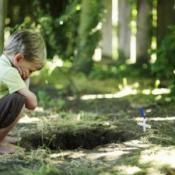 In January, I lost my best and dearest friend—my dog, Paco. Even though he was almost 15 years old, it was one of the most painful experiences of my life. In fact, it was so painful I needed six months until I could write about it. I considered not discussing this dark and depressing time in my life, as it would be so much easier in many ways to simply not talk about it. However, when I do speak about it, I realize just how helpful it is for other pet parents who have experienced this type of loss. So, in honor of Paco and all animal lovers, I share my experience to help you work through your grief in the healthiest way possible. I also offer some advice for others who seek to understand why this loss is so difficult for their loved ones.
In January, I lost my best and dearest friend—my dog, Paco. Even though he was almost 15 years old, it was one of the most painful experiences of my life. In fact, it was so painful I needed six months until I could write about it. I considered not discussing this dark and depressing time in my life, as it would be so much easier in many ways to simply not talk about it. However, when I do speak about it, I realize just how helpful it is for other pet parents who have experienced this type of loss. So, in honor of Paco and all animal lovers, I share my experience to help you work through your grief in the healthiest way possible. I also offer some advice for others who seek to understand why this loss is so difficult for their loved ones.
First, let me address the proverbial elephant in the room. Many people, particularly those who do not feel connected with or attached to animals, may not understand why losing an animal companion is so difficult. I have heard countless times from well-meaning others that, because animals do not have as long of a life expectancy, this loss is expected and just a part of life. It is often followed by the comment, “You gave him/her a good life.”
Even while such observations may be factually true, comments like these can feel dismissive. Yes, with some exceptions, we all know our dogs, cats, or other animal children probably will not live as long as we will. Nonetheless, comments of this nature are not at all helpful. So if you know someone who recently lost a “fur baby,” please choose your words more carefully. Other phrases to avoid include, “Just get another dog,” or, when someone with a recent loss adopts another animal, “It’s a replacement!” No animal (or life, for that matter) can be replaced. For those of us who are pet parents, comments like these are akin to telling a person that their human child could be replaced by another.
Next, I would like to share why our fur babies are so important to us. Relationships between humans are complicated. With animals, the relationship is simple and straightforward. There is unconditional love between the person and animal. There is no tension or noise about who took out the trash, no betrayal, no disappointment. For me, the human-animal bond is the most pure and joyful experience in life.
When an animal companion dies, there are no mixed feelings as there might be with humans; joy and love are simply ripped from our lives. Aside from possible relief that an animal’s suffering has ended, there is no upside. There is just pain, depression, and heartache.
When an animal companion dies, there are no mixed feelings as there might be with humans; joy and love are simply ripped from our lives. Aside from possible relief that an animal’s suffering has ended, there is no upside. There is just pain, depression, and heartache.
Given these circumstances, I found it excruciating to grieve Paco’s death.
How to Cope with Your Grief
For those, like me, who have lost a beloved animal companion, I offer these thoughts:
- What you are feeling is real, valid, and painful. Take as much time as you need to grieve. Cry when you feel the urge. Do what you need to do and on your own timetable. Resist the urge to diminish or downplay your suffering, particularly if doing so is associated with feeling pressure because your loss was an animal and not a human.
- Understand that grief comes in waves. It is natural to feel numb at times and “normal” at others. You might continue to grieve for months or years. It is okay. The more you can allow yourself to experience your feelings, no matter what they might be, the easier it may be to get through the loss.
- Seek therapy or a support group. Therapy may be particularly useful if your grief results in difficulties getting through work or your personal life for an extended period. There are even grief groups specifically for pet loss.
- It is okay to adopt another animal. Some people may adopt another pet immediately, while others need more time. There is no right answer. Adopting sooner rather than later is not necessarily a sign you are not acknowledging your loss. If you adopt more quickly, you will still likely notice your grief. A new companion might allow you to reconnect with joy again, but it will not replace your lost loved one.
How to Help Others with Their Grief
For those wishing to offer support to someone who lost a beloved pet, I offer this advice:
- Avoid saying anything that could be considered dismissive. Such comments may include variations of:
- “Dogs/cats/etc. do not live that long. This is just what happens. It is the circle of life.”
- “You can get another pet.”
- “You will get a replacement.”
- “Sometimes you just need to put them to sleep.”
- “It’s just an animal.”
- Do not pry for information about how the animal died or any other details. Sometimes people need space and time to grieve. Retelling the story can be too painful, especially in the beginning. Prioritize the grieving person’s wishes over your need to know.
- Refrain from telling the person how they should grieve. Everyone grieves differently; there is no right or wrong way and there is no schedule. If someone is depressed for an extended period, you can encourage them to look into grief counseling or a support group if it feels appropriate, but that suggestion must be made carefully and gently. Telling someone it has been long enough and they need to get over it is counterproductive and hurtful.
- Ask the person what they would like you to do (or not do). It is okay to ask the person what they need and how you can help. Sometimes a person will want to be left alone, sometimes they might need a hug, and sometimes they might need to talk. The more you can honor their wishes and needs, the more helpful it will be. And they will remember this kindness. Ultimately, it may strengthen your relationship with them.
I dedicate this piece to Paco Curiel (2002-2017), who taught me how to love fiercely, fearlessly, and deeply.
© Copyright 2017 GoodTherapy.org. All rights reserved. Permission to publish granted by Ashley Curiel, PsyD, GoodTherapy.org Topic Expert
The preceding article was solely written by the author named above. Any views and opinions expressed are not necessarily shared by GoodTherapy.org. Questions or concerns about the preceding article can be directed to the author or posted as a comment below.

 Ways to Cope with Grief and Loss after Putting a Pet to Sleep
Ways to Cope with Grief and Loss after Putting a Pet to Sleep When a Pet Dies: How to Help Your Child through Grief
When a Pet Dies: How to Help Your Child through Grief Why the Death of a Pet Matters (and Why Your Sympathy Does, Too)
Why the Death of a Pet Matters (and Why Your Sympathy Does, Too)